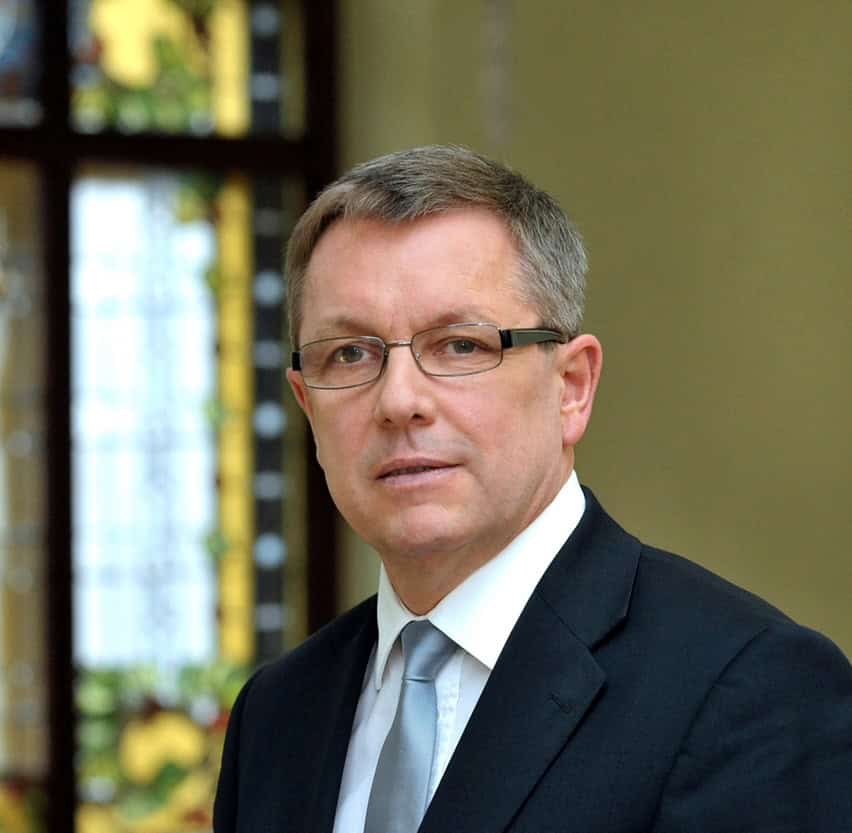György Matolcsy, governor of Hungary’s central bank (Magyar Nemzeti Bank), reflects on his second term and speaks about plans to potentially join the euro.
Global Finance: Next year marks the end of your second term as governor of the MNB. Looking back to 2013, what have been the biggest changes in Hungary’s economy, and what have been your main achievements?
György Matolcsy: After the global financial crisis, central banks realized that monetary institutions and policy needed to be renewed. This turnaround took place successfully in Hungary after 2013. The crisis pointed out the vulnerability of the financial system; therefore, the merger of the central bank and financial supervision into one institution helped strengthen financial stability. In parallel with achieving and maintaining price stability, the MNB strengthened the economy with targeted instruments.
In the second half of the 2010s—largely due to the central bank’s measures—Hungary’s economy was characterized by balance and high growth; average GDP growth during 2014-2019 was 4.1%. The MNB has recognized that these results can be preserved through an improvement in competitiveness.
The [post-Covid-19] global inflationary shock affected Hungary greatly, but the MNB reacted in a decisive and timely manner. It has taken appropriate measures to reduce inflation from a high level, but it is not over yet—the return of inflation must be avoided.
The main message of the past 12 years is that the formula of economic balance and growth takes you forward. The MNB contributed the most to growth by restoring and maintaining stability and, when it was possible, it strengthened it by implementing strong economic stimulus measures.

GF: Does Hungary still have plans to join the euro and, if so, what might be the timetable?
Matolcsy: The MNB is committed to the successful and safe introduction of the euro, but the right timing is key. As a catching-up economy, we must reach the appropriate preparedness for euro adoption.
In recent years, the MNB has recognized that for successful euro introduction, we cannot be satisfied with just fulfilling the Maastricht criteria. A stricter set of criteria is needed to determine the optimal timing, which takes into account real criteria—for example, competitiveness, relative GDP per capita position, the harmonization of business and financial cycles—in addition to the nominal conditions. By reaching the appropriate level of economic development, we can be among the winners of the euro project.
GF: Earlier this year the government said it wished to increase oversight over the MNB, something which you were very much opposed to, as it would undermine its independence. What is the status of these plans now?
Matolcsy: Central bank independence is absolutely key, particularly in such an uncertain environment. It provides assurance that the central bank is able to concentrate on its long-term statutory mandate to achieve and maintain price stability. Economic history shows us that independent central banks are more successful in bringing down inflation, and ultimately in creating the conditions for sustainable economic growth. The government has openly received the bank’s reasoning, and it is fundamental that any decisions [it makes] must strengthen central bank independence.
GF: Going forward, what do you think will be the main challenges facing the MNB and, more broadly, the Hungarian economy?
Matolcsy: In the 2020s, the world is facing complex challenges with the effects of colliding megatrends—geopolitical changes, the green transition, deteriorating demographic prospects and digitalization. These must surely also affect the monetary policy framework. For central banks, achieving and ensuring price stability remains the primary objective, in addition to ensuring financial stability. At the same time, megatrends will influence the expected path of inflation. Among these megatrends, central banks must also be open to the green transition and digitalization and give an adequate response to them. Central banks can facilitate a faster and smoother green transition and thereby ensure a lower inflation path. The MNB has undertaken a pioneering role in supporting the green transition of the economy with several instruments. Digitalization can open a new era in the history of money, such as through central bank digital currency [CBDC], something being actively researched right now by central banks around the world.



